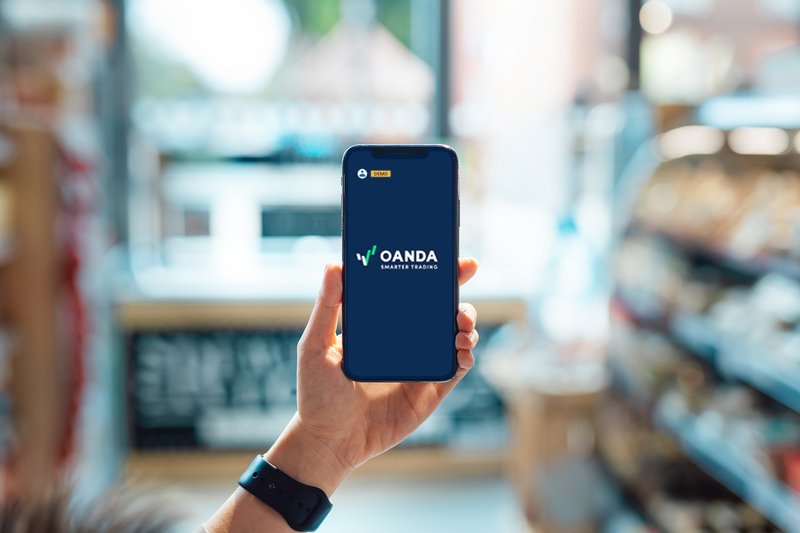Introduction
Becoming a successful forex trader is not necessarily a matter of luck or incredible skill. In this article, we will review some of the habits utilized by trading professionals and which you may choose to incorporate into your trading.
Create a Trading Plan and Stick with it
Perhaps what is most important for successful trading in forex is developing a trading plan. This is a key tool to approach trading with an effective strategy and a set of rules that will guide you in every trade that you make.
A forex trading plan need not be overly complicated or lengthy. Once written down, you should refer to your trading plan when executing and managing trades.
A trading plan can include, but is not limited to, the following elements:
- Quick outline of your trading plan - Summarize your trading goals and trading style.
- Trading routine – List your time frame and which trading sessions (e.g., Day time, US market)
- Trading strategy – Select your indicators and define the strategy’s trade entry and exit rules.
- Trade size – Number of units and type of asset (e.g., 10,000 EUR/USD)
- Money management – Define your risk per trade and your maximum drawdown, set rules for exits (e.g. Stop loss and take profit method).
Once you have written up a trading plan, it is crucial to follow it. This doesn’t mean that you can’t make changes to your plan. As you gain more experience in forex trading and determine which methods and strategies are working for you, you will likely wish to optimize your forex trading plan. What you are striving to maintain, no matter what the market throws at you, is a structured approach to trading, and the best way to do that is to stick to your trading plan.
Use a regulated and trustworthy forex broker
There are thousands of forex brokers out there, but all you need is one. It goes without saying that you will need to do some research and find a forex broker that you can trust and feel comfortable working with. A forex broker should meet the following requirements:
- Be registered and licensed with reputable strict regulators
- Provide a high level of security for your account
- Offer a demo trading account
- Charge reasonable transaction fees
- Allow smooth deposits and withdrawals of your funds
Practice trading with a demo trading account
If you’re new to forex trading, there may be a temptation to rush headfirst into live trading. This is never a good idea; a demo account allows you to become familiar with the trading platform and lets you practice your trading without risking any funds. If you are an experienced trader, you can first test new strategies on a demo account; if the results are positive, you can then move to the live forex market.
Find out how to avoid the most common mistakes traders make.
Traders should also remember that trading virtual money on demo accounts doesn’t offer the same emotional trading experience when compared to trading real money, every trader would be best advised to train themselves and practice how to manage their emotions while trading.
Remain Disciplined
It trader at all times. This means not trading out of emotion, FOMO or following what “the herd” is doing. Patience is a virtue, especially in trading. Following your trading plan can help ensure that you remain disciplined, no matter what is happening in the markets or what other traders are doing.
Stay Flexible
Even the best traders experience losing trades; that is the nature of the game. Don’t fight the market – instead, be ready to adapt to changing market conditions. The key is to follow your plan and avoid random or directionless trades. At the same time, if you see that your strategy is not functioning as intended, or that changing market conditions suggests using a different approach, don’t be afraid to alter your strategy or even consider creating a second one and make changes to your trading plan, it is important for traders to review their strategies periodically.
Find a trading niche
As with trading in any market, it is a good idea to try to find a niche where you have an advantage over other traders. This may mean staying focussed on a particular currency pair or sticking with a particular indicator or time frame that has worked for you.
Education
The forex market is dynamic and always changing. A successful trader must keep up with new developments in the forex industry, as well as factors that impact the forex market on a daily basis, such as global politics, news events, and economic reports. The internet is a wonderful tool for educational materials about the forex market, many of which are free.
These include reading materials, videos and courses, which are geared to both novice and advanced traders. There are even forex trading schools on the internet, which is another useful resource for traders.
Risk only what you can afford to lose
Remember that forex trading carries a risk, and you should only trade with funds that you can afford to lose and that won’t have a harmful impact on your finances. You certainly don’t want to trade with money that should be going towards the rent or a college education, because losing those funds could have disastrous consequences. Before funding your forex account or entering a trade, make sure that these are funds that you can afford to lose. Never make forex trades that put your financial stability at risk!
Ready to Start Your Trading Journey?
Interested in buying and selling major currencies? Apply for a demo account at OANDA to determine whether trading forex online is the right choice for you. The OANDA Trade platform contains a suite of trading tools to personalize layouts and powerful charting features, accompanied by expert trader analysis and up-to-the-minute market news.
Disclaimer
This article is for general information purposes only, not to be considered a recommendation or financial advice. Past performance is not indicative of future results.
It is not investment advice or a solution to buy or sell instruments. Opinions are the authors; not necessarily that of OANDA Corporation or any of its affiliates, subsidiaries, officers or directors. Leveraged trading in foreign currency contracts or other off-exchange products on margin carries a high level of risk and may not be suitable for everyone. We advise you to carefully consider whether trading is appropriate for you in light of your personal circumstances. You may lose more than you invest. We recommend that you seek independent financial advice and ensure you fully understand the risks involved before trading. Trading through an online platform carries additional risks. Losses can exceed deposits.



